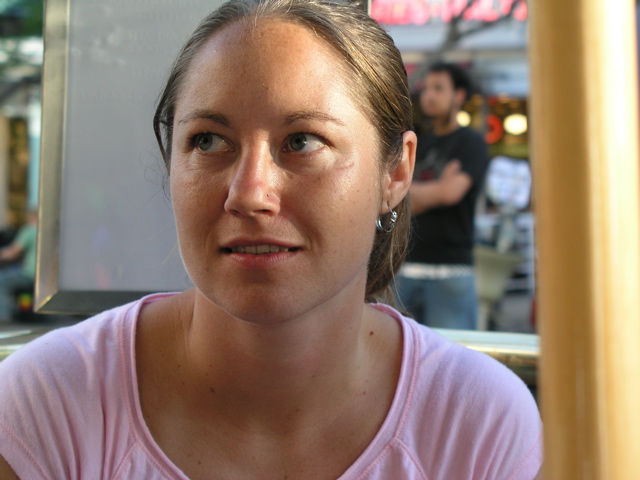"Mom, can my girlfriends come over?" my fifteen year old son
asked one evening. I told him it was fine with me, as long as both girls got
their parents' permission.
This was not my son's first relationship, but it was the first with two girlfriends. All three teenagers loved each other, and so they decided to all "go out".
I'll admit, I had my doubts that it would last. And, about three weeks into the relationship, I was proven right. However, at no point was I bothered or surprised.
My son is not neurotypical. His brain is wired a little different than most of his peers, and so he sees, thinks, and connects with others in a less typical fashion. Luckily, he also isn't growing up in a home that insists on typical. Especially in regards to relationships!
My husband and I have been happily married for thirteen years. We are drastically different! He's much older than I am, has a different skin color than me, and our dispositions couldn't be more opposite. Also, we live in two different houses. So, "typical" is not an expectation in our home when it comes to experiencing love.
Unfortunately, in many homes and the world at large, it is.
For neurodiverse people--autistic, Bi-Polar, OCD, Tourette's, ADHD etc.--this creates an extreme problem.
Social connections are already challenging for them, and relationships are challenging for everyone. So finding someone to love who will accept, and maybe even explore with kind interest, their need to scream in bathrooms, or avoid touch on the torso, or wear noise cancelling headphones when on outings, or the necessity of a keyboard for speaking, or a small closet to sleep in" this is more than a challenge for many. This frightens them away from comfortably being themselves, and from believing in the love they deserve.
The world is slowly moving in a more inclusive direction, which is good. Heck, when my husband was a kid our marriage would have been illegal, but the reality is an invisible disability is really hard to explain and understand. And too many people just avoid it, fear it, or give up on love.
Happily, there are some who go out of their way to solve this problem. Jeremy Hamburgh of Hitchcraft Dating is a neurodiverse dating coach. Jeremy has a passion for helping people find love, and has a gift for coaching men and women with social challenges who are looking to gain the skills and techniques necessary to connect and share honesty in a romantic relationship. " You don't have to be like me." Jeremy writes on his website. He goes on to share his philosophy for finding love with beautiful simplicity. " Keep an open mind. " He writes, "I know that neither of us is right all the time, but together we are right most of the time."
And there's my mom, Lynette Louise aka THE BRAIN BROAD--an international mental health expert who not only travels the globe as a special needs parenting specialist, but also as a friend. She connects with neurodiverse children and adults through purposeful play and "hanging out", exploring different styles of friendly affection and teaching the skill of friendship making. The first step in comfortably connecting and finding love!
These experts, and more, share the belief that love is for everyone and doesn't have to be shown or experienced in any specific way. That it's best experienced when it's authentic and life enhancing!
This Valentine's Day, let's celebrate the diversity of love! It doesn't have to look one way or another. Love isn't only real when it's the kind you understand. Love need never be "typical".
(Note: You can view every article as one long page if you sign up as an Advocate Member, or higher).






